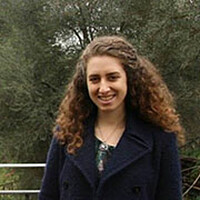Despite Rome murder, study finds students are less likely to die abroad
Loading...
Among students on college overseas programs and their loved ones, the murder of Beau Solomon, a University of Wisconsin-Madison student studying abroad in Rome, has stirred both solidarity and panic.
On Friday, the 19-year-old was found dead in the Tiber River, reported Newsweek. After tracking Mr. Solomon's phone and credit card, police arrested a homeless man in connection with his murder.
Solomon's murder underscores the importance of personal safety while studying in foreign countries. But an overemphasis on crimes committed against students overseas runs the risk of obscuring that, for US college students, studying abroad is considerably safer than studying on American campuses. That is what a March 2016 report by the Forum on Education Abroad found in its investigation of insurance claims data. In 2014, students learning abroad were 2.18 times less likely to die than those who remained on their US campuses.
“The field of education abroad and the institutions and organizations that sponsor and manage programs overall do an excellent job of selecting and preparing students to study abroad,” said President and CEO of the Forum on Education Abroad, Brian Whalen in an email to The Christian Science Monitor. “I think that is likely a chief reason that there are relatively few deaths of students abroad.”
Students and parents can minimize safety risks by attending pre-departure and on-site orientations, sharing safety concerns, and “knowing as much as possible about the host country,” Whalen told Newsweek. Students should also “make sure they have buddies that are looking after each other.”
The Forum’s Standards of Good Practices for Education Abroad provides best practices for foreign study programs to ensure that schools are preparing their students, instructors, and administrators for a safe experience abroad.
Accidents happen when students forget their program’s rules. "While it’s common for students and parents to focus their concerns on things like terrorism or civil unrest," the Northwestern University’s Office of Global Health and Safety says, “it’s more likely for students to be hurt in situations like traffic accidents or while swimming," which cause the most deaths of American students in foreign countries.
Nonetheless, nonprofits such as Depart Smart see an industry that needs improvement. “Currently, the multibillion dollar, study abroad industry is self-regulated. There are no federal or international laws protecting our students outside the U.S. and no jurisdiction when their feet touch foreign soil,” reads the website homepage.
Sheryl Hill and her husband, Allen, started ClearCause, now Depart Smart, when their teenage son died studying in Japan.
Not everyone agrees that all such laws may be productive, though. In March, Mr. Whalen wrote that the Forum on Education Abroad advocates best practices and not mandated collection of data, to ensure student safety.
"The test for success should be on the impacts of the legislation, both positive and negative," he writes. "Will legislation improve the education abroad field and will it help to ensure student safety?"
Whalen cites a Minnesota law, which Depart Smart lists as an advocacy milestone, that requires Minnesota colleges and universities to report all hospitalizations of students overseas. In the 2014-2015 school year, the data reported that 10,000 Minnesota students studied abroad, none of them died, and 28 were hospitalized.
"Pragmatically speaking," Whalen writes, "this data does not reveal anything that is helpful to improving the safety of students abroad."
Whalen told the Monitor the forum is currently working on a report that examines insurance claims from 2010 to 2015, which should give greater insight into how safety has differed between students in the US and those abroad.








